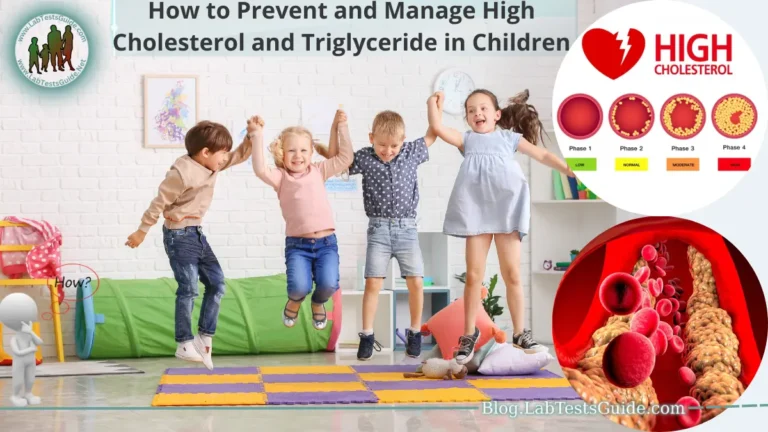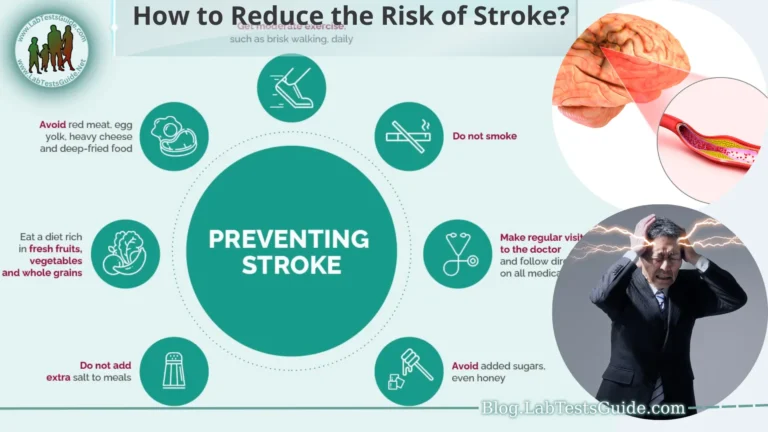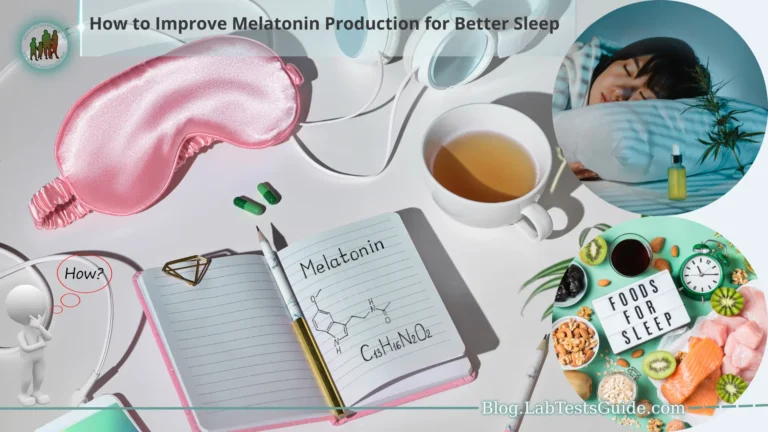Depression is a pervasive mental health condition that affects millions of people worldwide. It is more than just feeling sad or experiencing a rough patch; rather, it is a complex and debilitating disorder that can significantly impact a person’s thoughts, emotions, and behavior. Understanding how to manage and reduce the symptoms of depression is crucial for improving one’s quality of life and promoting overall well-being. In this comprehensive guide, we will explore various strategies, therapies, and lifestyle changes that can aid in coping with depression effectively.

The journey to managing depression involves a multi-faceted approach, combining professional support, self-care practices, and the development of a supportive social network. We will delve into the importance of seeking professional help when necessary, exploring therapeutic options like Cognitive Behavioral Therapy (CBT) and medications. Additionally, we’ll highlight the significance of self-care, stress management, and mindfulness in daily life. By empowering individuals with the knowledge and tools to address depression, this guide aims to provide hope and encouragement to those navigating the challenging terrain of mental health, reminding them that they are not alone in their struggle and that there is a path towards healing and recovery.
What is Depression?
- Depression is a common mental health disorder characterized by persistent feelings of sadness, hopelessness, and a lack of interest in once enjoyable activities.
- It goes beyond typical mood fluctuations and can significantly impair a person’s ability to function in daily life.
- Depression can affect people of all ages, genders, and backgrounds.
- It is often accompanied by physical symptoms such as changes in appetite, sleep disturbances, and fatigue.
- The causes of depression are complex and can involve a combination of genetic, biological, environmental, and psychological factors.
- Some common risk factors for depression include a family history of the condition, major life changes, chronic stress, and certain medical conditions.
- Depression is not a sign of weakness or something that can be easily overcome through willpower alone.
- It is a treatable condition, and seeking professional help is essential for accurate diagnosis and effective treatment.
- Different types of depression exist, including major depressive disorder, persistent depressive disorder, and seasonal affective disorder, each with its unique characteristics and duration.
- Left untreated, depression can lead to serious consequences, such as social withdrawal, substance abuse, and an increased risk of suicide. However, with appropriate support and intervention, individuals can find relief and regain control over their lives.
How to Manage and Reduce the Symptoms of Depression:
- Seek Professional Help: If you suspect you may be experiencing depression or have been diagnosed with depression, reach out to a qualified mental health professional. A therapist or counselor can provide guidance, support, and evidence-based treatments tailored to your specific needs.
- Practice Self-Care: Prioritize self-care in your daily routine. Engage in activities that bring you joy and relaxation, such as hobbies, exercise, spending time in nature, or practicing mindfulness and meditation.
- Build a Supportive Network: Surround yourself with understanding and supportive friends and family. Sharing your feelings and experiences with trusted individuals can help reduce feelings of isolation and provide emotional support.
- Consider Medication: In some cases, medication may be recommended to manage depression symptoms. Consult with a psychiatrist to explore potential options and discuss any concerns you may have about medication.
- Cognitive Behavioral Therapy (CBT): CBT is a highly effective therapeutic approach for depression. It helps identify negative thought patterns and replaces them with more positive and adaptive ways of thinking, leading to improved emotional well-being.
- Monitor Your Thoughts and Emotions: Keep a journal to track your mood and thought patterns. Recognizing triggers and patterns can help you develop coping strategies and better understand your emotions.
- Set Realistic Goals: Break tasks into manageable steps and set achievable goals. Celebrate your progress, no matter how small, and avoid being overly critical of yourself.
- Adopt a Healthy Lifestyle: Maintain a balanced diet, exercise regularly, and get enough sleep. Physical health and mental health are interconnected, and taking care of your body can positively impact your mood.
- Limit Stress: Identify sources of stress in your life and develop coping mechanisms to manage them. Techniques like deep breathing, yoga, or progressive muscle relaxation can help reduce stress levels.
- Avoid Substance Abuse: Resist the temptation to self-medicate with drugs or alcohol, as they can exacerbate depression symptoms and lead to further complications.
Understanding Depression:
Depression is a complex and prevalent mental health condition that affects millions of individuals worldwide. It goes beyond a temporary feeling of sadness and encompasses a range of emotional, cognitive, and physical symptoms that can significantly impact a person’s daily life. To gain a deeper understanding of depression, it’s essential to explore its key aspects and the factors that contribute to its development.
- Types of Depression: Depression is not a one-size-fits-all condition, and there are various types of depression with distinct characteristics. Major Depressive Disorder (MDD) is the most common type, characterized by persistent low mood, loss of interest in activities, and changes in appetite and sleep patterns. Other forms include Persistent Depressive Disorder (PDD), which involves chronic but less severe symptoms, and Seasonal Affective Disorder (SAD), which occurs during specific seasons, often triggered by reduced sunlight.
- Causes and Risk Factors: The causes of depression are multifaceted and can vary from person to person. Genetics can play a role, as individuals with a family history of depression may be at higher risk. Imbalances in brain chemicals, such as serotonin and dopamine, also contribute to the condition. Additionally, environmental factors like chronic stress, traumatic life events, or significant changes can trigger or exacerbate depression.
- Symptoms of Depression: Depression manifests through a range of emotional, cognitive, and physical symptoms. Common emotional signs include feelings of sadness, hopelessness, and worthlessness, while cognitive symptoms involve difficulty concentrating, memory problems, and negative thought patterns. Physical symptoms may include changes in appetite, sleep disturbances, fatigue, and unexplained aches or pains.
- Impact on Daily Life: Depression can have a profound impact on various aspects of an individual’s life. It may lead to decreased productivity at work or school, strained relationships, and social withdrawal. Additionally, those with depression may experience a loss of interest in previously enjoyable activities, affecting their overall quality of life.
- Seeking Professional Help: If someone suspects they may be experiencing depression, it is crucial to seek professional help. A mental health provider can conduct a thorough assessment, offer a proper diagnosis, and recommend appropriate treatment options, which may include therapy, medication, or a combination of both.
- Stigma and Misconceptions: Unfortunately, stigma surrounding mental health can prevent individuals from seeking help or sharing their struggles openly. Promoting awareness and understanding can help combat stigma and encourage people to seek the support they need without judgment.
- Treatment and Recovery: Depression is a treatable condition, and recovery is possible with the right interventions. Effective treatments may include psychotherapy (such as Cognitive Behavioral Therapy or CBT), medication, lifestyle changes, and support from loved ones. The journey to recovery may involve ups and downs, but with persistence and support, individuals can achieve better mental well-being.
Seeking Professional Help:
Here are essential points to consider when seeking professional help for depression.
- Recognizing the Need: Acknowledge and accept that you may need professional support. Common signs that indicate seeking help include persistent feelings of sadness, hopelessness, loss of interest in activities, changes in sleep and appetite, difficulty concentrating, and thoughts of self-harm or suicide.
- Types of Mental Health Professionals: There are different types of mental health professionals who can provide assistance for depression. These may include psychiatrists, psychologists, licensed therapists, counselors, and social workers. Each professional has specific expertise, so it’s essential to find the right fit for your needs.
- Starting the Search: Begin by asking for recommendations from trusted friends, family members, or healthcare providers. You can also research mental health professionals online or through professional directories to find someone who specializes in depression or related conditions.
- Initial Consultation: Schedule an initial consultation with the mental health professional to discuss your concerns and assess their approach to treatment. Use this meeting to determine if you feel comfortable and understood by the therapist, as a strong therapeutic alliance is crucial for effective treatment.
- Confidentiality and Trust: Ensure that the mental health professional you choose maintains strict confidentiality, creating a safe space for you to share your thoughts and feelings without fear of judgment.
- Treatment Options: The recommended treatment for depression may vary based on your specific circumstances. Therapy, such as Cognitive Behavioral Therapy (CBT), can be effective for addressing thought patterns and coping strategies. In some cases, medication may also be prescribed, particularly for moderate to severe depression.
- Complementary Approaches: Alongside traditional therapies, consider complementary approaches like mindfulness practices, art therapy, or support groups. These can be beneficial in enhancing overall well-being and providing additional support.
- Medication Consideration: If medication is prescribed, discuss potential benefits, side effects, and any concerns you may have with the prescribing professional. Ensure you are well-informed before making a decision about medication.
- Open and Honest Communication: Be open and honest with your mental health professional about your feelings, experiences, and any challenges you may encounter during the treatment process. Effective therapy often relies on collaborative communication.
- Patience and Commitment: Recovery from depression may take time, so be patient with yourself and the therapeutic process. Stay committed to attending therapy sessions regularly and actively participating in your treatment.
Self-Care Strategies:
Here are essential self-care strategies to consider.
- Establish a Supportive Routine: Create a daily schedule that includes regular routines for waking up, eating, working, and sleeping. Having a structured routine can provide a sense of stability and predictability, which can be beneficial in managing depression.
- Engage in Physical Activity: Regular exercise has been shown to have significant benefits for mental health. Aim to incorporate activities you enjoy, such as walking, jogging, yoga, or dancing, into your routine to release endorphins and improve mood.
- Practice Mindfulness and Meditation: Mindfulness techniques, such as deep breathing, meditation, and progressive muscle relaxation, can help you become more present and aware of your thoughts and emotions. These practices can reduce stress and promote a sense of calm.
- Prioritize Sleep: Establish a consistent sleep schedule and create a calming bedtime routine. Aim for 7-9 hours of sleep per night, as sleep plays a crucial role in emotional regulation and overall well-being.
- Nourish Your Body: Eat a balanced and nutritious diet that includes fruits, vegetables, whole grains, lean proteins, and healthy fats. Proper nutrition can positively impact mood and energy levels.
- Limit Stressors: Identify sources of stress in your life and take steps to minimize or cope with them. This may involve setting boundaries, saying no to additional commitments when feeling overwhelmed, and delegating tasks when possible.
- Engage in Creative Activities: Pursue creative outlets that bring you joy, such as painting, writing, music, or crafting. Engaging in creative expression can be therapeutic and serve as a positive coping mechanism.
- Spend Time in Nature: Whenever possible, spend time outdoors and connect with nature. Nature walks, gardening, or simply sitting in a park can have a calming effect on the mind and reduce stress.
- Practice Gratitude: Cultivate a gratitude journal, where you regularly write down things you are thankful for. Focusing on positive aspects of your life can shift your perspective and promote a more optimistic outlook.
- Limit Screen Time: Be mindful of excessive screen time, especially on social media, as it can contribute to feelings of inadequacy and comparison. Set boundaries and take breaks from technology to nurture real-life connections.
Cognitive Behavioral Therapy (CBT):
Here’s a closer look at the key components and benefits of CBT.
- Cognitive Restructuring: One of the fundamental aspects of CBT is cognitive restructuring. This involves identifying negative or irrational thoughts, known as cognitive distortions, and challenging their validity. By replacing these negative thoughts with more balanced and realistic ones, individuals can develop a more positive and constructive outlook.
- Behavioral Activation: CBT also focuses on behavioral activation, encouraging individuals to engage in activities they may have withdrawn from due to depression. This helps in breaking the cycle of isolation and low motivation, leading to increased feelings of accomplishment and enjoyment.
- Goal-Setting: Setting specific and achievable goals is an essential part of CBT. Therapists work with individuals to establish realistic goals and develop action plans to work towards them. Progress towards these goals can contribute to a sense of purpose and accomplishment.
- Skills Training: CBT may involve teaching individuals coping skills to manage challenging situations or emotions. These skills can include relaxation techniques, problem-solving strategies, and communication skills.
- Monitoring Progress: CBT often includes tracking moods, thoughts, and behaviors to monitor progress and identify patterns or triggers. This self-monitoring helps individuals become more aware of their emotional states and enables them to apply coping strategies more effectively.
- Time-Limited and Structured: CBT is typically time-limited and structured, meaning that it follows a specific treatment plan with predetermined sessions. This structure can provide a clear framework for progress and encourage active participation from the individual.
- Individualized Treatment: CBT is tailored to meet each individual’s unique needs and challenges. Therapists work collaboratively with their clients to understand their specific struggles and develop personalized strategies for coping and growth.
- Long-Term Benefits: CBT equips individuals with tools and skills that can extend beyond the therapy sessions, allowing them to apply what they’ve learned to manage future challenges effectively.
- Complementary Approach: CBT is often used in conjunction with other treatment modalities, such as medication, especially for individuals with moderate to severe depression.
Medication Options:
Here are some common medication options used to treat depression.
- Selective Serotonin Reuptake Inhibitors (SSRIs): SSRIs are among the most commonly prescribed antidepressant medications. They work by increasing the levels of serotonin, a neurotransmitter that plays a crucial role in regulating mood, in the brain. Some common SSRIs include fluoxetine (Prozac), sertraline (Zoloft), escitalopram (Lexapro), and paroxetine (Paxil).
- Serotonin-Norepinephrine Reuptake Inhibitors (SNRIs): SNRIs work similarly to SSRIs but also target norepinephrine levels. This dual action can be beneficial for some individuals with depression. Common SNRIs include venlafaxine (Effexor) and duloxetine (Cymbalta).
- Tricyclic Antidepressants (TCAs): TCAs are an older class of antidepressants but are still used in certain cases. They work by affecting the levels of serotonin and norepinephrine in the brain. TCAs include medications like amitriptyline (Elavil) and nortriptyline (Pamelor).
- Atypical Antidepressants: This class includes medications that don’t fit into the categories of SSRIs, SNRIs, or TCAs. Examples include bupropion (Wellbutrin), which primarily affects dopamine and norepinephrine levels, and mirtazapine (Remeron), which has a unique mechanism of action.
- Monoamine Oxidase Inhibitors (MAOIs): MAOIs are an older class of antidepressants reserved for cases where other medications have not been effective. They work by inhibiting the breakdown of neurotransmitters like serotonin, norepinephrine, and dopamine. MAOIs have more potential for interactions with certain foods and medications, so they require careful monitoring and dietary restrictions.
- Antipsychotic Augmentation: In some cases, antipsychotic medications may be used in combination with antidepressants, particularly for individuals with treatment-resistant depression. This approach is known as augmentation therapy.
Social Support and Relationships:
Here are some key aspects of social support and relationships in the context of depression.
- Importance of Social Connections: Maintaining meaningful social connections is essential for emotional well-being. Engaging in regular interactions with friends, family members, colleagues, or support groups can provide a sense of belonging and foster a positive outlook.
- Emotional Validation: Social support involves having individuals who can empathize with your feelings and experiences. Being heard and emotionally validated by others can provide comfort and reduce feelings of alienation.
- Sharing Feelings and Experiences: Opening up about your feelings and experiences with trusted individuals can help relieve emotional burden and create opportunities for problem-solving and coping strategies.
- Reducing Stigma: Having supportive relationships can reduce the stigma associated with depression. Knowing that you are not alone in your struggles can help combat feelings of shame or inadequacy.
- Supportive Listening: Being a good listener is an essential aspect of providing social support. Active listening involves giving your full attention, withholding judgment, and showing empathy to the person sharing their feelings.
- Empathy and Understanding: A supportive network should consist of individuals who are understanding and compassionate about your experiences with depression. They should be willing to support you through difficult times without dismissing or minimizing your feelings.
- Avoiding Toxic Relationships: While social support is beneficial, it’s essential to be aware of toxic or unsupportive relationships. Surround yourself with people who genuinely care for your well-being and avoid those who undermine your efforts to manage depression.
- Joining Support Groups: Participating in support groups specifically designed for individuals with depression can offer a safe space to share experiences, coping strategies, and emotional support with others who can relate to your struggles.
- Seeking Professional Guidance: If your support network is limited, or you find it challenging to share your feelings with loved ones, consider seeking the guidance of a trained therapist or counselor. They can provide a neutral and supportive environment for discussing your experiences with depression.
Stress Management:
Here are effective stress management strategies.
- Identify Stress Triggers: Pay attention to situations, events, or thoughts that trigger stress. Understanding what causes stress can help you develop targeted coping strategies.
- Practice Relaxation Techniques: Engage in relaxation techniques like deep breathing exercises, progressive muscle relaxation, or meditation. These practices can help calm the mind and reduce the physiological effects of stress.
- Exercise Regularly: Physical activity is a powerful stress reducer. Engaging in regular exercise, such as walking, jogging, yoga, or dancing, releases endorphins, which are natural mood boosters.
- Prioritize Sleep: Ensure you get enough restful sleep each night. Proper sleep helps reduce stress and enhances emotional resilience.
- Set Realistic Goals: Break tasks into manageable steps and set realistic goals for yourself. Avoid overwhelming yourself with excessive expectations.
- Time Management: Organize your time effectively and prioritize essential tasks. Creating a structured schedule can reduce feelings of chaos and improve productivity.
- Establish Boundaries: Set boundaries to prevent feeling overwhelmed by excessive commitments. Learn to say no to additional responsibilities when necessary.
- Engage in Hobbies: Participate in activities that bring you joy and relaxation. Hobbies can serve as a healthy outlet for stress and promote a sense of fulfillment.
- Seek Social Support: Share your feelings and experiences with trusted friends or family members. Talking about stressors can help relieve emotional tension and provide different perspectives.
- Practice Mindfulness: Mindfulness involves being fully present in the moment without judgment. It can help reduce stress by focusing your attention on the present rather than worrying about the past or future.
- Limit Exposure to Stressors: If certain situations or environments consistently cause stress, limit your exposure when possible. Minimizing contact with stressors can help improve your overall well-being.
FAQs:
What is depression?
Depression is a mental health disorder characterized by persistent feelings of sadness, hopelessness, and a lack of interest in activities that were once enjoyable. It affects a person’s thoughts, emotions, and behaviors, and can significantly impact daily functioning and overall well-being.
What are the common symptoms of depression?
Common symptoms of depression include persistent low mood, loss of interest in activities, changes in appetite and weight, sleep disturbances, fatigue, feelings of worthlessness or guilt, difficulty concentrating, and thoughts of death or suicide.
What causes depression?
Depression is caused by a combination of genetic, biological, environmental, and psychological factors. Some common triggers include traumatic life events, chronic stress, imbalances in brain chemicals, and a family history of depression.
How is depression diagnosed?
A diagnosis of depression is typically made by a qualified mental health professional, such as a psychiatrist or psychologist. The diagnosis involves a comprehensive assessment of the individual’s symptoms, medical history, and personal experiences.
What are the treatment options for depression?
Treatment for depression may include psychotherapy (such as Cognitive Behavioral Therapy or CBT), medication (such as antidepressants), lifestyle changes, social support, and complementary therapies like mindfulness practices.
How effective is therapy for depression?
Therapy, especially evidence-based approaches like CBT, has shown to be highly effective in treating depression. It can help individuals identify and change negative thought patterns, develop coping strategies, and improve emotional regulation.
Can depression be treated without medication?
Yes, depression can be treated without medication, especially for individuals with mild to moderate symptoms. Therapy, lifestyle changes, social support, and self-care strategies can be effective in managing and reducing depression symptoms.
What can I do to support a loved one with depression?
Supporting a loved one with depression involves listening non-judgmentally, offering empathy and understanding, and encouraging them to seek professional help. Avoid trying to “fix” their problems but instead be a source of emotional support.
Is depression a lifelong condition?
Depression can be a chronic condition for some individuals, while others may experience periods of remission. With appropriate treatment and support, many people can effectively manage depression and lead fulfilling lives. Regular therapy sessions, self-care practices, and ongoing social support are essential for long-term management.
Conclusion:
In conclusion, managing and reducing the symptoms of depression requires a comprehensive and personalized approach that combines professional help, self-care strategies, social support, and effective stress management techniques. Understanding depression as a complex mental health condition and recognizing the importance of seeking professional assistance are vital steps towards healing and recovery. By adopting self-care practices, such as engaging in physical activity, practicing mindfulness, and setting realistic goals, individuals can develop resilience and improve their overall well-being. Nurturing supportive relationships and seeking help from loved ones or mental health professionals can alleviate feelings of isolation and provide essential emotional validation. Additionally, employing effective stress management techniques, like identifying stress triggers and practicing relaxation methods, can significantly impact one’s ability to cope with depression and promote a more positive outlook on life. Remember, managing depression is a journey, and with dedication, patience, and the right support, it is possible to find hope and healing for a brighter future.






